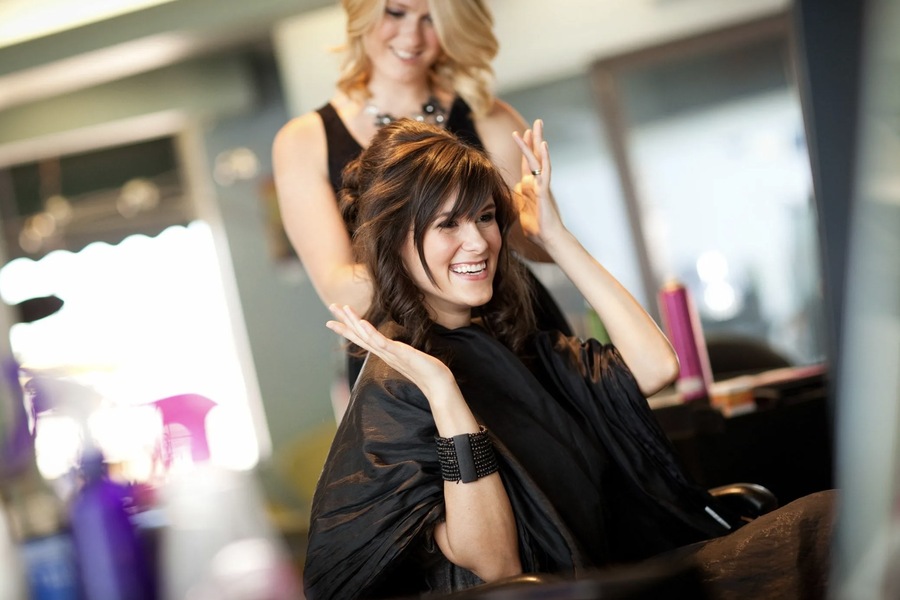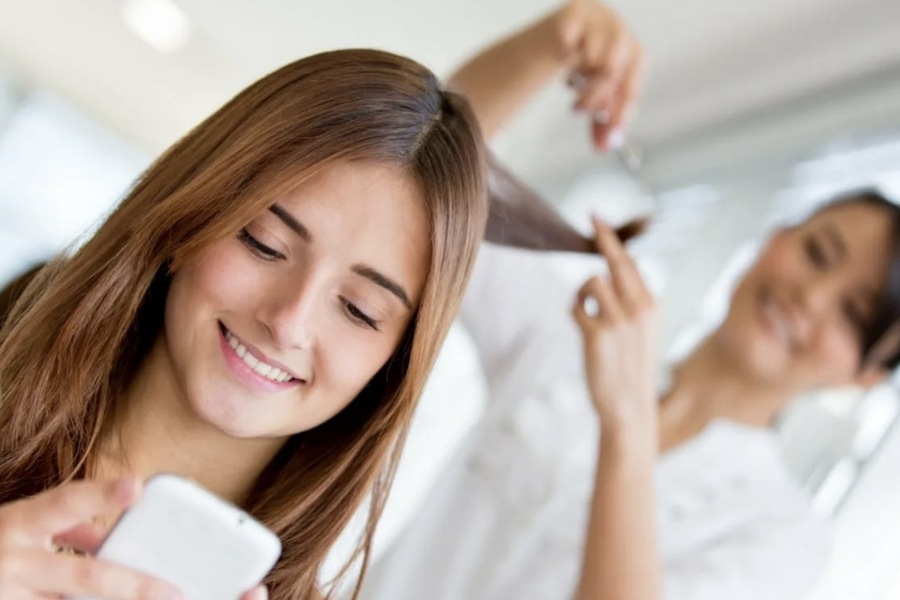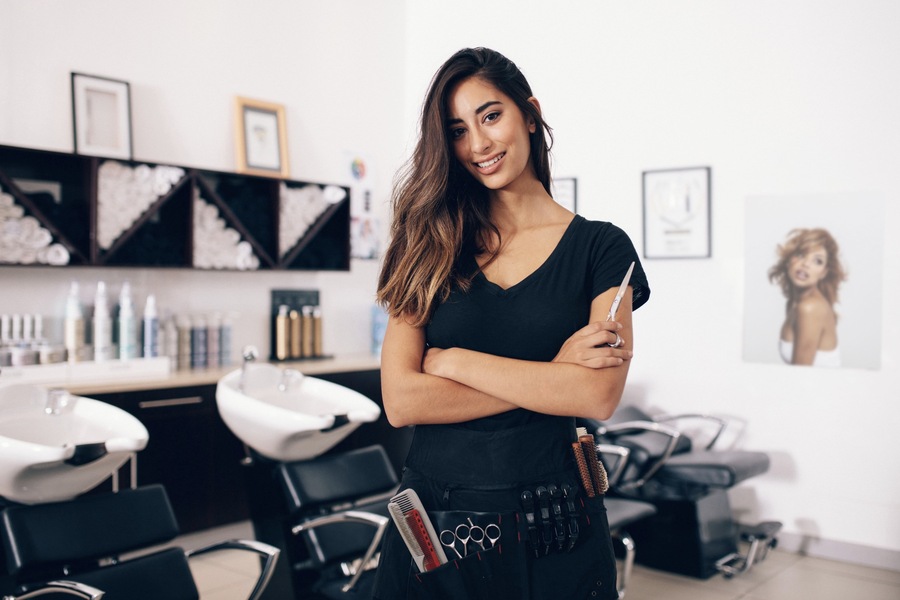The Role of Beauty Salons in Social Networking Among Women
In the bustling environment of Dubai and the broader UAE, beauty salons have evolved into more than places for personal grooming. They now serve as hubs for social interaction, cultural exchange, and community building, offering women a unique space to connect, share, and grow. As these establishments adapt to the needs of a cosmopolitan population, their role in fostering social networks has become increasingly significant.
A Historical Perspective on Beauty Salons as Social Spaces
Beauty salons have long been centers of social engagement. In many cultures, they provided a private and welcoming setting where women could gather, exchange stories, and build friendships. From traditional hair salons in small towns to urban spas, the tradition of communal interaction has been an intrinsic part of salon culture.
In the UAE, this historical function continues, with salons acting as sanctuaries where women can freely converse and bond. The cultural value placed on beauty and self-care enhances this role, as salons are naturally seen as places for both personal enhancement and social connection. This is especially relevant in a society where the emphasis on personal presentation aligns with professional and cultural expectations.
The Cultural Significance of Salons in the UAE
Dubai and the UAE’s multicultural environment makes beauty salons a microcosm of diversity. Emirati women often view salons as spaces to engage in cultural rituals, such as henna applications before weddings and other festival celebrations. These traditions, which hold deep cultural significance, allow salons to serve as platforms for preserving heritage.
For expatriates, salons provide an opportunity to experience these cultural practices while introducing their own. This blend of traditions fosters a sense of shared identity and appreciation for the UAE’s unique cultural landscape. In this way, salons transcend their basic function, acting as bridges between different communities.

Salons as Hubs for Social Networking
In a city as dynamic as Dubai, building and maintaining social networks is essential. Beauty salons have adapted to meet this need, offering more than just services—they provide an informal environment for women to connect. These connections often go beyond casual chats, turning into long-term friendships or professional alliances.
The layout and atmosphere of salons encourage conversation. Women sitting side by side during treatments naturally engage in discussions, ranging from personal topics to broader societal issues. Unlike other public spaces, salons offer privacy, making them ideal for more open and meaningful interactions.
Professional Networking in Salons
The professional benefits of salon networking are often underestimated. In Dubai, where entrepreneurship and career growth are highly valued, salons have become places where women can share business ideas, discuss opportunities, and form collaborations. The informal nature of these discussions often leads to more genuine and productive connections compared to traditional networking events.
For instance, a businesswoman might discover potential clients or partners through casual conversations during a manicure session. Similarly, beauty professionals, such as stylists and makeup artists, often leverage these interactions to gain referrals and grow their client base. This dual role of salons—serving both social and professional purposes—adds to their appeal.
Supporting Expatriate Communities
Expatriates make up a significant portion of Dubai’s population. For many, beauty salons become a lifeline for building connections and finding support in a new country. These spaces allow women to meet others who share similar cultural backgrounds or life experiences, helping them navigate the challenges of living abroad.
Salons often cater to specific communities, offering services that align with cultural preferences, such as hair braiding for African clients or threading for South Asian patrons. These specialized offerings attract a loyal customer base, fostering a sense of familiarity and belonging. For expatriates, salons become more than a place for grooming—they are a home away from home.
Facilitating Social Cohesion
In a city as diverse as Dubai, beauty salons contribute to social cohesion by bringing together women from various ethnicities, religions, and professions. The shared experience of grooming and self-care serves as a common ground, encouraging dialogue and mutual respect.
For example, a salon might host women from different nationalities, each bringing their unique perspectives and traditions. These interactions promote understanding and create bonds that transcend cultural barriers. By fostering inclusivity, salons play a subtle yet impactful role in strengthening the social fabric of the UAE.
Mental Health Benefits of Social Interaction in Salons
The benefits of salon visits extend beyond socialization. Studies have shown that regular social interaction improves mental health by reducing feelings of loneliness and stress. For women balancing demanding careers and family responsibilities, salons provide a much-needed respite—a place to relax, connect, and recharge.
The sense of community within a salon can be particularly comforting during challenging times. For instance, a woman going through a significant life change might find solace in the support and camaraderie of other clients or salon staff. These informal networks often provide emotional encouragement, reinforcing the salon’s role as a pillar of well-being.
Salons as Platforms for Cultural Exchange
Beauty salons in Dubai are uniquely positioned as spaces for cultural exchange. The city’s diverse population ensures that clients and staff come from varied backgrounds, bringing a wealth of traditions, practices, and stories. This cultural diversity enriches the salon experience, making it more than just a transaction.
For example, a European expatriate might learn about Emirati henna traditions while getting a manicure, or an Asian client might introduce others to her preferred skincare techniques. These exchanges enhance cultural understanding and appreciation, making salons vibrant spaces of learning and connection.
Influence on Social Trends and Behaviors
Salons have a significant impact on shaping social trends, particularly in a fashion-conscious city like Dubai. Women often exchange recommendations for products, services, and beauty techniques during their visits, spreading trends organically through word-of-mouth.
This influence extends beyond aesthetics. Salons often serve as platforms for discussions about wellness, work-life balance, and societal issues. These conversations can inspire changes in behavior or perspective, demonstrating the broader role salons play in shaping community norms and values.

Technology and Its Role in Salon Socialization
The integration of technology into beauty salons has added a new dimension to social networking. Online booking systems and social media pages allow salons to engage with clients outside physical appointments. Platforms like Instagram and WhatsApp are often used to showcase work, share promotions, and facilitate group bookings.
This digital connectivity enhances the social aspect of salons, enabling clients to recommend services, share experiences, and even organize group visits. The use of technology ensures that the salon experience remains relevant in a digitally driven world, appealing to tech-savvy customers.
The Personal Touch of Local Salons
While luxury chains dominate much of Dubai’s beauty scene, local establishments like Zieda’s Beauty Lounge offer a more personalized experience. These salons often build strong relationships with their clients, fostering a sense of community. Clients value the familiarity and attention to detail provided by such establishments, which further enhances their social role.
Local salons are also more likely to incorporate cultural elements into their services, making them appealing to both residents and expatriates. This personalized approach ensures that clients not only leave looking great but also feeling connected and valued.
Conclusion
In Dubai and the UAE, beauty salons have transcended their traditional purpose, becoming vital spaces for social networking among women. These establishments foster connections that range from casual friendships to professional alliances, while also promoting cultural exchange and social cohesion.
By offering an environment where women can engage, relax, and connect, salons contribute to mental well-being, community building, and cultural appreciation. As Dubai continues to grow as a global hub, the role of beauty salons in shaping social networks will only become more prominent.
For women seeking more than beauty treatments, salons provide a gateway to a richer, more connected life. Whether through shared traditions, meaningful conversations, or new professional opportunities, these spaces demonstrate the power of social interaction in enhancing quality of life.

Biker, feminist, hiphop head, Saul Bass fan and recent OCAD grad. Making at the intersection of art and mathematics to create not just a logo, but a feeling. My opinions belong to nobody but myself.
